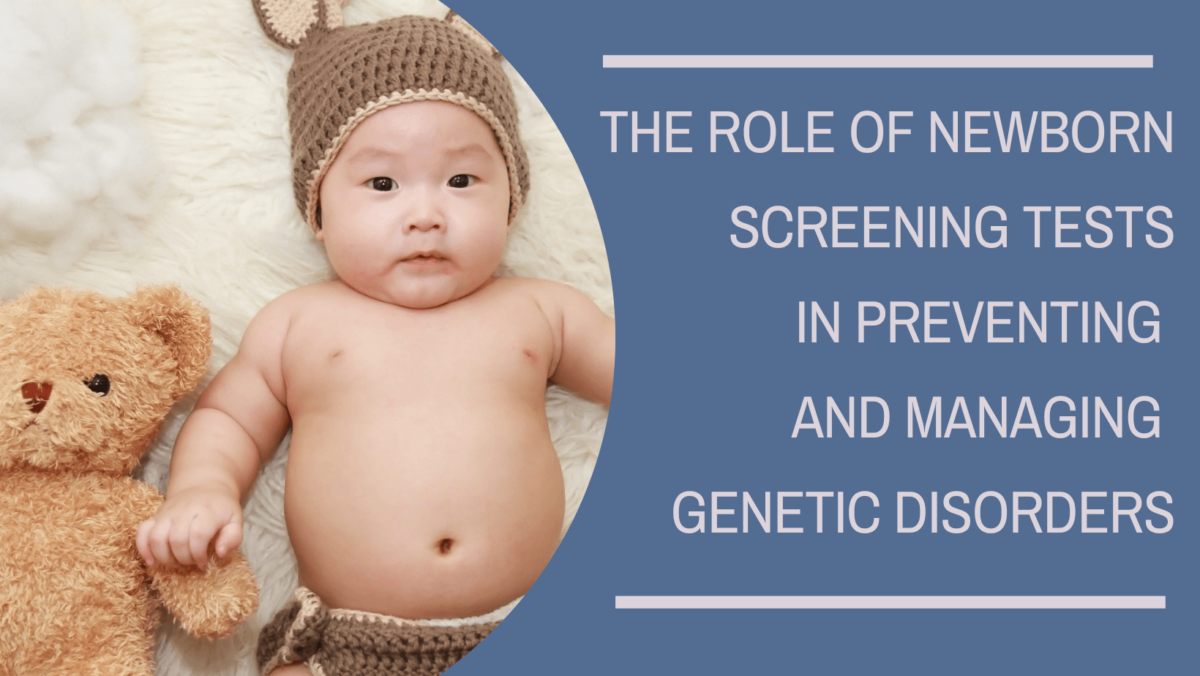A newborn screening test (NBS) is conducted to identify several genetic, developmental, and metabolic problems in the infant. With the help of a genetic adorning screening test, a doctor can spot genetic diseases in a newborn and correct or treat the condition by performing before symptoms appear. The test assists parents and medical professionals in making a diagnosis and in taking prompt action to manage, intervene with or treat the disease. The infant’s life will be made healthier and happier as a result of this.
Every baby must have a newborn blood spot screening test because some genetic illnesses may not be detectable at birth. So, whether or not a baby’s outward look says they are healthy, medical science advises screening all newborns. Let’s discuss the role of baby screening tests in preventing and managing genetic disorders.
The Genetic Screening Test: How Is It Performed?
After 24-48 hours of delivery, every baby has a newborn screening test done. Up until the infant is 13 days old the screening test is administered. Genetic screening can also use to detect illnesses up until the age of two. However, it also advises having the screening as soon as possible.
The baby’s heel is pricked to obtain a blood sample, which is introduced to a lab for a biochemical test to check for several genetic diseases. Most of the time, genes or chromosomes pass the inherited medical illnesses or genetic abnormalities to the unborn child.
Blood test helps to diagnose diseases like phenylketonuria (PKU), methylmalonic acidemia, maple syrup urine disease (MSUD), tyrosinemia, citrullinemia, medium chain acyl CoA dehydrogenase (MCAD) deficiency, and sickle cell anaemia, among others. A blood test was further carried out to identify several disorders, as well as hormone and haemoglobin problems.
What Sorts of Disorders Can Be Detected by New-Born Screening?
Blood samples are taken to diagnose the screening tests, which can identify more than 44 metabolic abnormalities in neonates. Chemical imbalances inherited from the parents are a primary contributing factor to many diseases. After a few days or weeks, the newborn will feel the effects of this chemical imbalance strongly. Babies born with these illnesses may have parents without a history of the disorders and children who are healthy and disorder-free.
How Can Genetic Disorders Occur?
Each of the millions of cells that make up the human body has 46 chromosomes, or matching pairs of 23 chromosomes, half of which are inherited from the baby’s father and the other 23 from the mother. The biological, psychological, and physical traits of an individual are determined by these chromosomes. The body receives instructions for growth and development from its genetic makeup. Genetic disease is the phrase used to describe when the DNA undergoes harmful modifications. It alters the course of the child’s development and affects their health, as well as their mental and physical development.
Genetic Screening Advantages?
Any apparent signs are found and addressed by administering the screening test to infants. This test is merely diagnostic, and if the infant has any conditions, further testing may be advised. Due to natural chemicals produced by the body, the screening test also finds inborn metabolic abnormalities.
Final Words
In conclusion, NBS has become a staple of preventative public health, and its panel is always growing. Specialized DBS-based metabolic testing tools continue to be crucial to NBS. Genetic and genomic testing have become effective tools thanks to breakthroughs in science. But, each has benefits and drawbacks. For some genetic illnesses, the integrated analysis of metabolic and genetic data will increase the existing NBS effectiveness, allowing more affected individuals to obtain early diagnosis and treatment, improving their prognosis. If you are looking for a newborn screening test in west Yorkshire, Miracle Inside is one of the best options. They provide the best service with their expert to protect your Child’s health.
